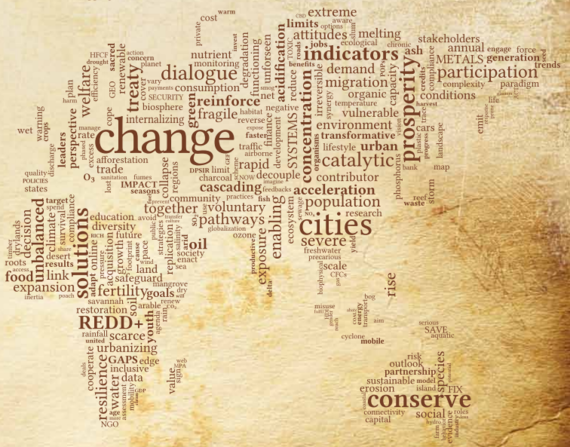
Over the last 45 years, the international community has signed hundreds of environmental agreements. They range from preserving biodiversity to fixing the ozone hole, and from protecting oceans to sustaining freshwater resources.
Unfortunately, nations have a poor record of carrying out their commitments.
In 2012, the United Nations issued a study in which it reviewed progress on 90 of the most important environmental goals and objectives to which nations had agreed. It found that significant progress had been made in only four. Progress couldn't be assessed in 14 other agreements because there were insufficient data.
That is why a key issue in the final hours of the international climate conference in Paris this week is accountability -- the obligation of all nations to regularly report and verify the progress they are making on fulfilling their commitments to fight global warming.
For those who have been locked in a closet these past several months, here is the background: Since Nov. 30, 195 nations have been meeting in Paris in the latest attempt to reach a global agreement to reduce their greenhouse gas emissions and to help each other adapt to the climate changes that already are underway.
It is the 21st consecutive year that nations have attempted to do this. The meeting in Paris is widely viewed as the best and, perhaps, last chance to achieve a global pact. The deadline for a deal is the end of the day on Friday, about 24 hours from now as I write this, and the tension is mounting because several sticky issues remain unresolved.
Among them are proposals that every nation be legally bound to report its progress every five years or so in clear, unambiguous and verifiable terms. The purpose is not only to make sure every nation can trust every other to keep its word; it's also to check regularly on whether the overall Paris agreement is working. It makes sense.
I have argued that the Obama Administration should use its executive powers to sign off on a legally binding deal in Paris -- a deal in which every nation is subject to sanctions if it does not make a good faith effort to reduce its carbon emissions. Knowing that Congress would have a fit, the Administration has chosen not to go that far. But it has rightly advocated that the reporting requirement be legally binding.
As the deadline for a deal approaches, transparency and verification of progress are not the only unresolved issues. There still are the perennial questions of how much money richer nations will provide to poorer nations as they attempt to solve poverty and develop their economies with clean energy. Countries that already are suffering major climate damages, including some island nations that literally are being swallowed by rising oceans, are demanding damage payments from the industrial nations whose emissions are responsible for the climate impacts already underway. Some 186 nations have submitted commitments to cut their emissions starting in 2020, but the most vulnerable countries are pushing for action before then.
While each of these issues is important -- an ambitious global agreement may be impossible without resolving them -- each nation's regular verification of progress is fundamental for several reasons, from maintaining trust to increasing the confidence of investors that a transition to clean energy is indeed underway.
One of those reasons is the poor record of progress on past environmental commitments. COP-21, as the Paris conference is called, cannot merely be another photo op for world leaders. It must be a strong agreement with equally strong verification at regular intervals that every participating nation is doing its part.
After discovering how little progress had been made in the past, the United Nations enlisted the International Organization of Supreme Audit Institutions to make sure that 280 multilateral environmental agreements were being properly implemented. Perhaps that is a solution here.
However the transparency problem is resolved, every nation that is serious about the commitment it has put on the table in Paris should have nothing to hide. Those nations that are not serious should not be allowed to hide.
As a prominent American politician once said, we should trust but verify. As another put it, some things take a village. That has never been truer than it is in regard to climate change and to the talks this week in Paris.

